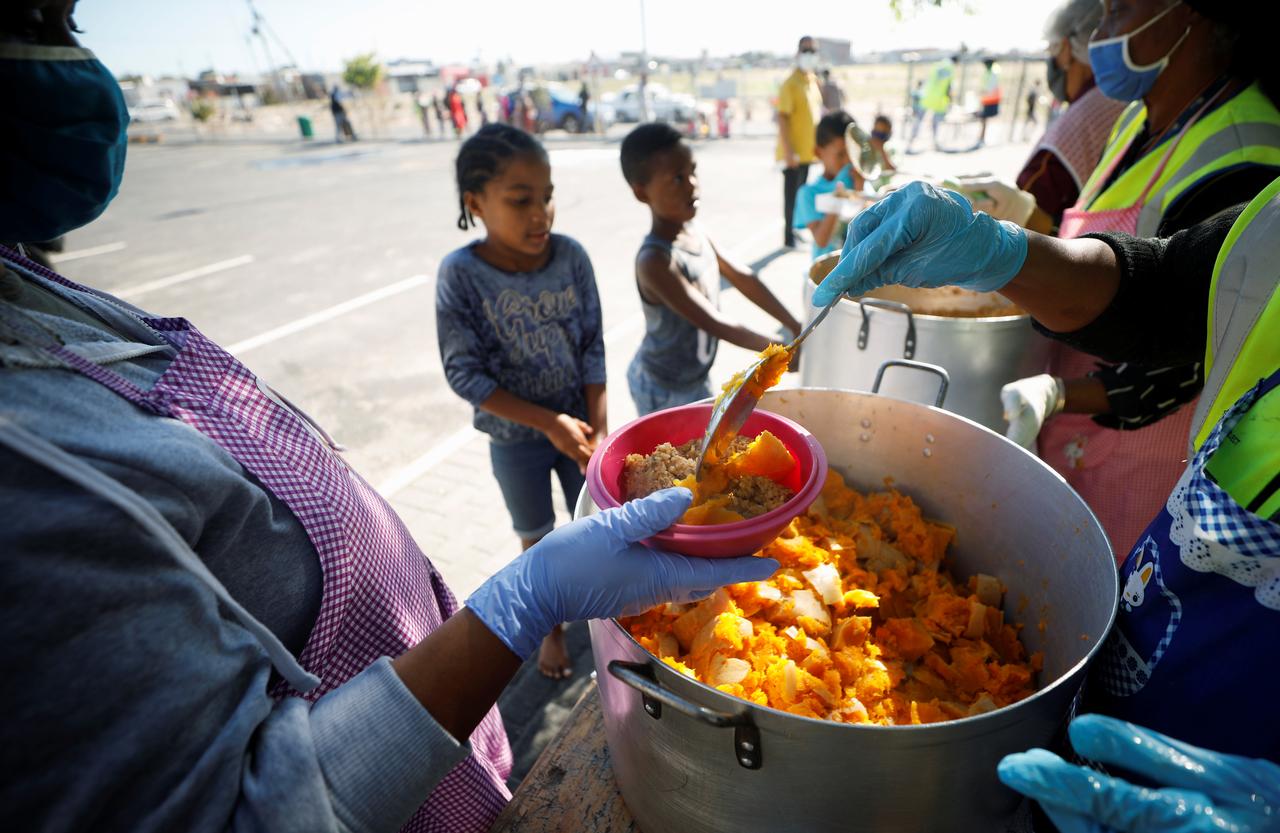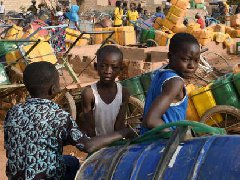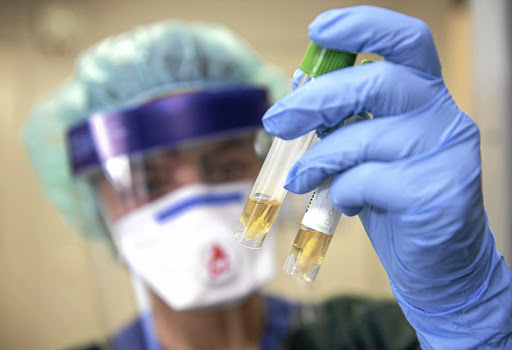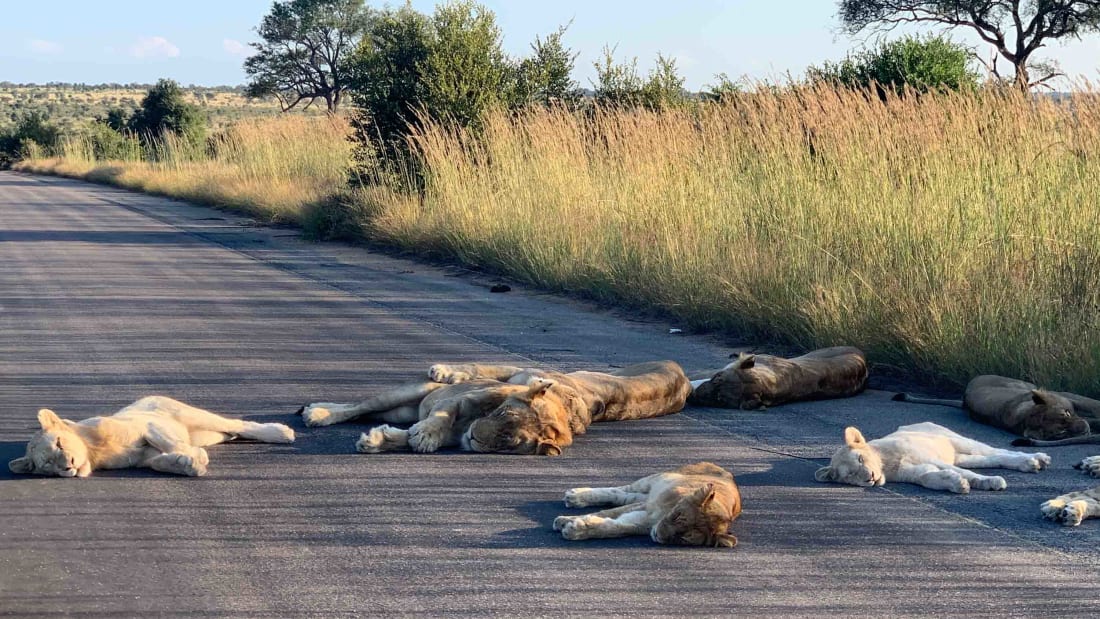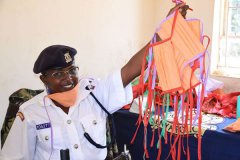Let Africa into the market for COVID-19 diagnostics
让非洲进入新冠诊断市场
Africa is boosting its capacity to respond to COVID-19, but lack of solidarity will cost lives, warns Africa CDC head John Nkengasong.
非洲疾病预防控制中心(CDC)负责人约翰 恩肯加松警告说:“非洲正在增强对新冠病毒的应对能力,但缺乏团结会使民众丧生”。
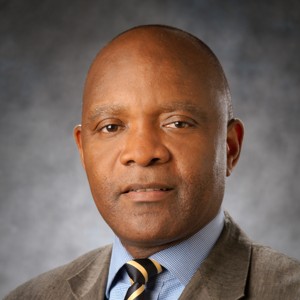
The first case of COVID-19 in Africa was reported in Egypt on 14 February 2020. Since then, 52 countries in Africa have reported more than 30,000 cases and about 1,400 deaths from the new coronavirus. This count is likely to be an underestimate; Ethiopia has run about 11,000 tests — only 10 for every 100,000 people. Much-richer South Africa has run about 280 per 100,000. For Australia, the number is about 2,000; for the United States, 1,560.
2020年2月14日,埃及报导了非洲首例新冠确诊病例。此后,非洲已有52个国家报导了超过3万例确诊病例,死亡病例约1400例。这个数据似乎被低估。埃塞俄比亚已进行了约11000人次检测,也就是说,每十万人中仅有10人接受了检测。南非更多一些,每十万人约280人进行了检测。在澳大利亚为十万分之2000,美国约为十万分之1560。
First the good news. African countries are used to widespread testing for pathogens such as HIV, tuberculosis and malaria. This expertise can easily be adapted for SARS-CoV-2 testing. The Africa Centres for Disease Control and Prevention (Africa CDC), which I lead, held the first of its training sessions in early February. By mid-March, 43 countries had gained competence to test for the virus —if appropriate reagents were accessible.
好消息是,非洲国家习惯于对艾滋病,结核病及疟疾等疾病的病原体进行广泛检测。对上述病原体的应对经验与专业技能可以轻松的适用于新冠病毒检测,我领导的非洲CDC于二月初举办了首次培训课程,到三月中旬,若检测试剂合适充足,43个非洲国家便已可具有检测新冠病毒的能力。
But they are not. The collapse of global cooperation and a failure of international solidarity have shoved Africa out of the diagnostics market. With its lack of hospitals and high prevalence of conditions such as HIV, tuberculosis, malaria and malnutrition, Africa could see COVID-19 mortality rates higher than elsewhere, even in children. It will be higher still the more slowly we implement testing. No country can securely eliminate COVID-19 — or its devastating economic domino effects — if the disease becomes rampant across a continent of 1.3 billion people. For Africa to get ahead of the pandemic, we need to scale up testing fast.
但事实并非如此,全球合作的瓦解和国际团结的失败已将非洲挤出了新冠诊断市场。在医院缺乏,艾滋病,结核病,疟疾,营养不良等疾病高发的情况下,可以预见,在非洲,甚至儿童的新冠死亡率都要高于其他地区。实施检测的速度越慢,死亡率会越高。如果新冠疾病在非洲这片十三亿人口的大陆上蔓延开来,任何国家都无法安全逃离病毒本身以及病毒所带来的经济方面毁灭性的多米诺骨牌效应。为了使非洲抢在疾病大流行前面,我们必须快速扩大测试范围。
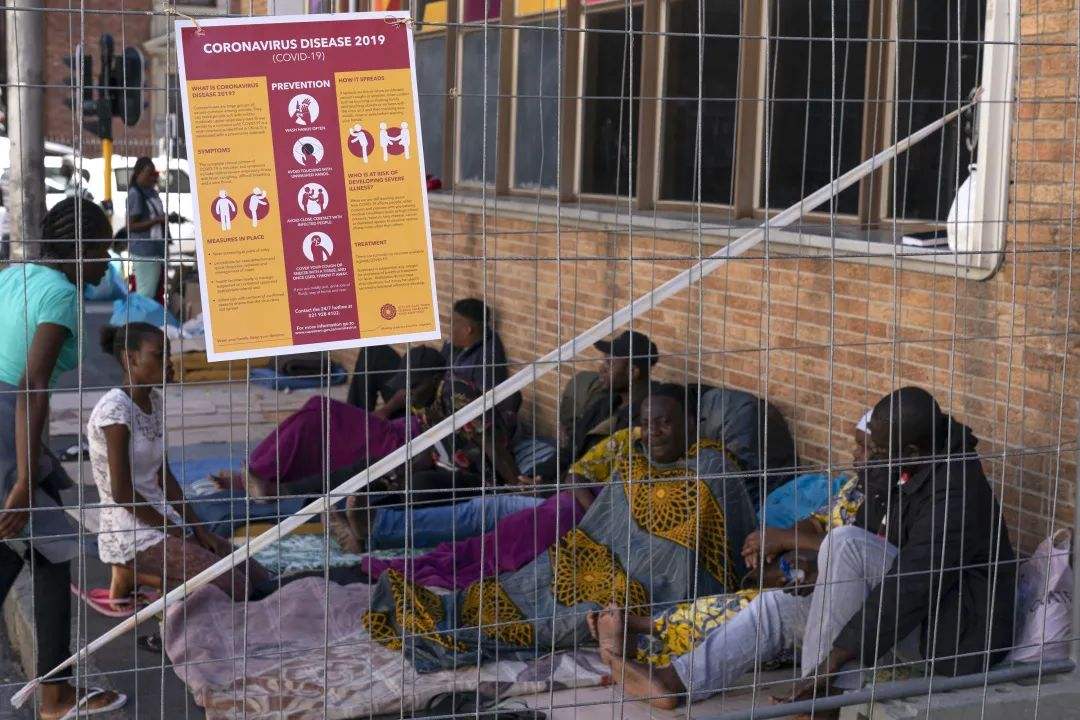
Lack of access to diagnostics is Africa’s Achilles heel. When SARS-CoV-2 was first reported, genome sequences were made available within weeks and several groups in Asia and Europe started producing in-house tests. Africa lacked this capacity and had to wait for the tests to be introduced, a tardy ‘trickle-down’ of diagnostics. The situation has now become worse: a race is on by the powerful to acquire whatever COVID-19 tests are available.
缺乏诊断手段是非洲的致命弱点。当新冠病例被首次报导时,亚洲和欧洲的几个小组便开始进行了内部检测,数周内即可提供基因组序列。非洲缺乏这种能力,必须等待检测方法的诞生,这一点一滴一步一步导致了诊断的延迟。现在情况变得更糟,比赛开始上演,强者争夺任何一切可用的新冠检测试剂。
This is not a question of demanding charity. African countries have funds to pay for reagents but cannot buy them. To solve this problem, we need solidarity both across the world and within the continent. But instead of global solidarity, global protectionism has prevailed, with more than 70 countries imposing restrictions on the export of medical materials. Wealthier countries should reserve some fraction of these supplies for export; that would cut their own risk that the disease will be reintroduced. Where export markets are open, African countries must band together to negotiate as one large customer, rather than as many small buyers fighting for a seat at the table.
这不是在请求慈善非洲国家有资金来支付试剂,但购买无门。为了解决这个问题,我们需要整个非洲大陆和全世界的团结。然而,全球保护主义并不是全球团结,现在全球保护主义盛行。70多个国家对医疗物资出口施加限制。医疗物资富裕国家应将这些供应品中的一部分储存用以出口。这也将降低他们自己再次被这种疾病感染的风险。当出口市场开放,非洲国家必须团结起来,不要像许多小卖家那样争席夺位,要以一个大客户的身份进行谈判。
Cooperation across Africa is starting to happen. Africa CDC has a plan to distribute one million test kits by mid-May, which we started implementing earlier this month.
非洲各地的合作正在开展进行。非洲CDC计划在五月中旬之前完成分发一百万份试剂套装,并于本月初开始着手实施。
The strategy to increase testing for COVID-19 is fourfold. First, we need to pool the procurement and distribution of tests across the continent. This will create synergies and block counterproductive competition. Second, we have to work with non-government laboratories and the private sector to roll out testing on the subnational level. In many countries, samples must be shipped to a centralized diagnostic laboratory, which adds cost and delay. Third, we need to make sure our testing technologies can use the existing platforms that have been the backbone for large-scale testing for HIV and tuberculosis.
增加新冠病毒检测的方法分为四方面。首先,我们需要在整个非洲大陆范围内集中进行检测试剂的采购与分配。这将会产生协同作用并阻止会使其适得其反的竞争。第二,我们必须与非政府实验室和一些私人部门合作以在国家以下水平推出检测。许多国家必须将样品送至集中的诊断实验室,这样会增加检测成本和检测时间。第三,我们必须确保我们的检测技术能够使用现存的以艾滋病和结核病大范围检测为骨架的平台。
Finally, we need to speed up the production of test kits within Africa. Plans for production are under way in Kenya, Morocco, Senegal and South Africa. In April, Africa CDC launched an initiative called Partnership to Accelerate COVID-19 Testing (PACT). The goal is to reach 10 million tests in the next four months, although this timescale falls far short of serving our very real immediate needs.
最后,我们需要加快非洲境内检测试剂套装的生产。肯尼亚,摩洛哥,塞内加尔和南非已在实行生产计划。在四月,非洲CDC发起了名为“加速COVID-19检测伙伴关系(PACT)”的倡议,目标是在接下来的四个月里达到一千万次的病毒检测。但这个时间表也远远不能满足我们真正迫在眉睫的需求。
Africa CDC has developed guidelines for targeted testing that include every person with pneumonia, and people in clusters of disease that could be COVID-19. PACT will focus on coordinating efforts to act on test results so that countries can isolate infected individuals, perform contact tracing and quarantine exposed people (ideally, in their own homes). This means mobilizing hundreds of community workers and building partnerships between local government officials, public-health experts, social scientists and other community leaders. To do this we plan to draw on the experience of the African Health Volunteers Corps in fighting Ebola in West Africa and the Democratic Republic of the Congo. Training of community workers must cover ethics, confidentiality, privacy, discrimination, stigmatization and individual rights.
非洲CDC已经制定了包括每个肺炎患者以及新冠疑似人群的针对性检测指南。PACT将致力于根据检测结果协调工作以使各国能够隔离感染患者,进行接触者追踪,隔离病毒暴露人群(最好在家自己隔离)。这意味着要动员成百上千的社区工作者,并在地方政府官员,公共卫生专家,社会学家和其他社会领导者之间建立伙伴关系。为此,我们计划借鉴非洲卫生志愿团在非洲西部与刚果抗击埃博拉病毒方面的经验。对社区工作人员的培训必须涵盖道德规范,机密意识,隐私保护,禁止歧视侮辱,个人权利等方面。
For PACT to succeed and save lives, it needs international support and partnership with the private sector, not interference, and support from the African Union COVID-19 Response Fund. Government leaders, finance and health ministers and global-health experts must be willing to work together for a collective win, even when leaders feel pressure from their own nations. The decision of the finance ministers of the G20 group of nations, the World Bank Group and regional development banks to rapidly implement a US$200-billion emergency response package, and to temporarily suspend debt payments for the poorest countries, is welcome and essential.
为使PACT建立成功并且挽救生命,他需要国际支持和私人机构的伙伴关系,而非他们的干扰,它还需要非洲联盟COVID-19响应基金的支持。不仅政府领导人需要感受到自己国家的压力,全球卫生专家,政府领导人,财政与卫生部长也必须为集体胜利而共同努力。G20国家集团,世界银行组织和区域发展银行的财务长们决定迅速实施两千亿美元的应急响应计划,并且暂时停止最贫穷国家的债务偿还。这个决定是可喜可贺的,也是绝对必要的。
Hundreds of thousands of Africans shouldn’t need to die because of a global crisis that requires global action and global solidarity. If Africa loses, the world loses.
全球危机需要全球行动和全球团结,这样,成百上千,成千上万的非洲人民才不致丧生。非洲失败,则全球必将失败。
外文链接:https://www.nature.com/articles/d41586-020-01265-0

 让非洲进入新冠诊断市场
让非洲进入新冠诊断市场